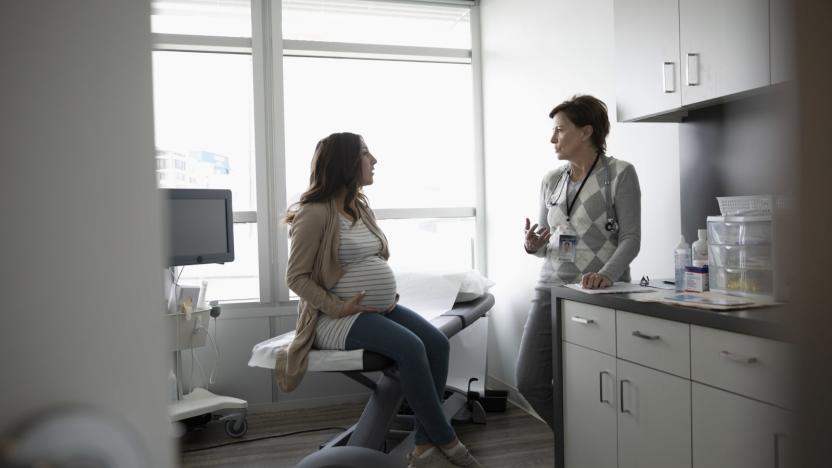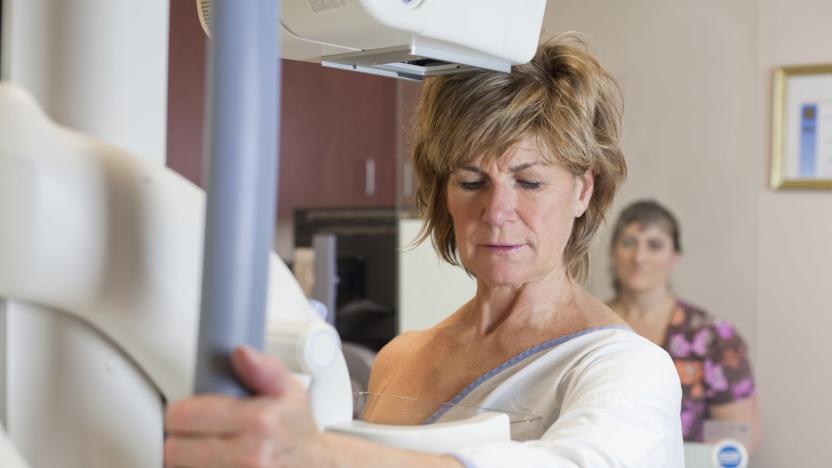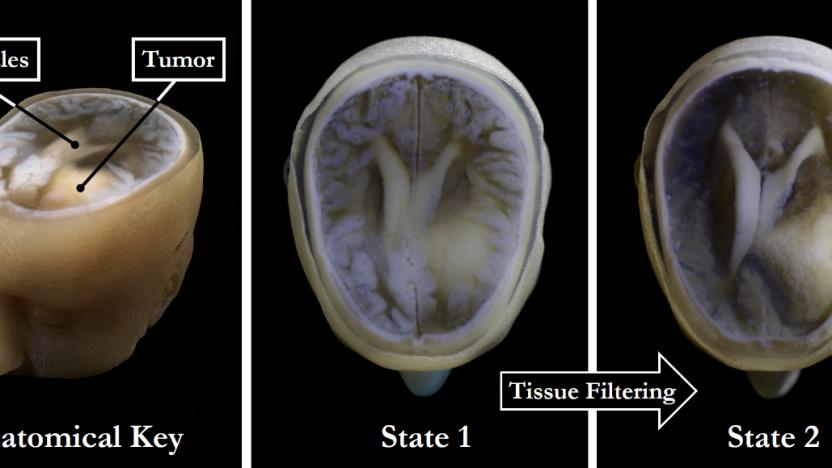radiology
Latest

MIT’s algorithm could improve imaging techniques used during pregnancy
The placenta plays a critical role in pregnancy: connecting the fetus to the maternal blood system. But assessing placental health is difficult because modern imaging techniques provide limited information. Researchers from MIT's Computer Science and Artificial Intelligence Lab (CSAIL) think they might be able to change that using a volumetric mesh-based algorithm.

IBM AI helps predict breast cancer a year before it appears
IBM isn't just using AI to predict diabetes. Its researchers have developed an AI model that can predict malignant breast cancer within a year with an 87 percent accuracy rate comparable to human radiologists. While there are already AI prediction methods that rely on either mammogram images or medical records, IBM's stands out by using both -- and it's potentially more reliable as a result.

Researchers trick radiologists with malware-created cancer nodes
Security researchers in Israel have developed malware that can add realistic-looking but entirely fake growths to CT and MRI scans or hide real cancerous nodules that would be detected by the medical imagining equipment. The software, designed by experts at the Ben Gurion University Cyber Security Research Center, was created to highlight the lax security protecting diagnostic tools and hospital networks that handle sensitive information.

MIT's AI can identify breast cancer risk as reliably as a radiologist
Breast cancer affects one in eight women in the US. There are multiple factors involved in developing the disease, but one issue is dense breast tissue. Some 40 percent of US women have dense breast tissue, which alone increases the risk of breast cancer, and can make mammogram screening more difficult. Now, researchers from MIT and Massachusetts General Hospital (MGH) have developed an automated model that assesses dense breast tissue in mammograms as reliably as expert radiologists.

You'll soon be able to get a 3D printed model of your brain
There are almost limitless possibilities when it comes to 3D printing. Design your own color-changing jewelry? Fine. Fabricate your own drugs? No problem. Print an entire house in under 24 hours? Sure! Now, researchers have come up with a fast and easy way to print palm-sized models of individual human brains, presumably in a bid to advance scientific endeavours, but also because, well, that's pretty neat.

Dutch researchers dust off X-ray machine from 1896 to compare it to modern equipment
This one is a bit shocking to us. X-rays were discovered in 1896, and recently, a team of researchers at Maastricht University Medical Center in the Netherlands pulled a machine from 1896 off the shelf for the purpose of comparing its results to modern equipment. The researchers say that this original equipment pumped out around 1,500 times more radiation than new equipment in order to produce its results. Speaking of those results, they are unsurprisingly less sharp and detailed than modern X-rays, but they still look pretty impressive if you ask us. The X-rays were conducted on a cadaver this time around rather than a living person because of the high levels of radiation. Full results will be published in the Journal Radiology this month.



